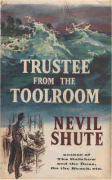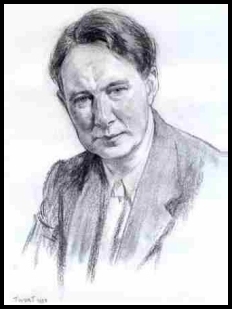| In my Father's house are many mansions if it were not so I would have told you. | ||
| I go to prepare a place for you. | St John 14.2 | |
We hear of Tom Cutter as a choirboy and of Connie going off "to any old church" when he had the chance. It includes a visit to a mosque when they were in Woking. Connie's father is a Buddhist and his mother is of the Greek Orthodox Church. When Tom Cutter is talking to his mother on a visit to England about the men he is employing we get a whole page about Moslems at prayer.
When Tom Cutter meets up with Connie, now called Shak Lin, again we hear how he has been learning more about the Buddhist faith, about the Lord Guatama and about The Four Noble Truths. When Shak Lin comes to work for Tom Cutter Tom learns a lot more about Shak Lin's teaching
Men who work as you do upon aeroplanes can pray to God forty-five times a day quite easily and I will tell you how...."
and pages of the novel are taken up in doing this. Far too many to quote in detail here.
When Nevil Shute was flying his own plane to Australia a landing was made at Rangoon and when he is there he visits an English ex-army major who has become a Buddhist Priest and this story gets included (under a pseudonym) in Round the Bend. Again it is to make quite direct connections between different faiths because the old Buddhist Priest concludes their meeting by telling Tom Cutter
I know you are not a religious man. I will put what I have to tell you in words as simple as I can make them. Men are weak, and sinful, and foolish creatures. When they are given something that is beautiful and good they can recognise it and venerate it, but gradually they spoil it. Infinite wisdom, infinite purity, and infinite holiness cannot be passed from hand to hand by mortal men down through the ages without being spoiled. Errors and absurdities creep in and mar the perfect vision. All religions of the world have become debased. Every religion in the world requires to be refreshed from time to time by a new Teacher.
Then when Tom Cutter is faced with severe problems about what he ought to do we are told: -
When you are in a bit of trouble I think your mind goes back to childhood, to the time when you had no responsibilities when all decisions were made for you. That's a grand time that is. I got to thinking about my time in the choir that Sunday afternoon as I drove into Winchester. I'd got nothing better to do, and I turned left down the High Street and then right, and parked by the cathedral.
It was quiet, and dim, and cool in the cathedral. I stood at the end of the nave vaguely looking round; it was restful, a good place to think in....There was an old man in black there at the end of the aisle. He came up to me and said quietly ‘The service is in the choir this afternoon sir. May I show you to a seat?' It was on the tip of my tongue to say I didn't want to go to any service, and then I though perhaps I did, so he took me through the carved screen and put me in a choir stall of old carved wood. There wasn't anything in particular about that service. Good singing, a hymn or two, an anthem, all in the familiar ritual that I had known as a boy. I was still tired, and once or twice I nearly fell asleep on my knees. Maybe God did that for me. I know when it was over and I walked out of the choir, I was tested and quite calm. I knew what I'd got to do.
And then chapter six starts with a quotation from Hassan by James Elroy Flecker saying much the same thing about Mecca.
"To Maccah thou hast turned in prayer with aching heart and eyes that burn"
When Tom is in Bali he learns that their religion is what he describes as "a form of degenerate Hinduism, unworthy of the islanders sincerity in worship". Again with the idea that all religions are at times in need of being purified?
Chapter 7 starts with another quotation from Flecker
God be thy guide from camp to camp;
God be thy shade from well to well;
God grant beneath the desert stars thou hear the prophet's camel bell.


